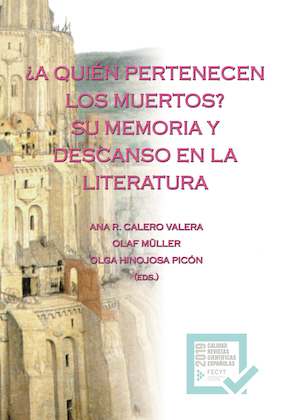The dead wrote their memory: Postmemory and metafiction in 21st century Europe
DOI:
https://doi.org/10.7203/qdfed.24.16340Keywords:
metafiction, postmemory, generational memory, Spanish Civil War, Holocaust Abstract
Abstract
In Spain, as well as Germany, the official public discourse has struggled between remembering the victims and a necessary oblivion in order to focus on the future. In general, literature has taken on the responsibility of keeping alive the memory of the dead left by the traumatic history of Europe’s twentieth century. The works of Alberto Méndez and Michel Bergman reflect such time, framed by the “postmemory” typical of the descendants of the witnessing generation. The powerful testimonies of these witnesses are incorporated into the works Manuscrito encontrado en el olvido (2004) and Weinhebers Koffer (2015) through metafiction turned into a resource that allows the dead to have their own voice.
 Downloads
Downloads
Downloads
Published
How to Cite
-
Abstract602
-
PDF (Español)418
Issue
Section
License
 Este obra está bajo una licencia de Creative Commons Reconocimiento-NoComercial-SinObraDerivada 4.0 Internacional.
Este obra está bajo una licencia de Creative Commons Reconocimiento-NoComercial-SinObraDerivada 4.0 Internacional.
Authors who publish with this journal agree to the following terms:
- Authors retain copyright and grant the journal right of first publication with the work simultaneously licensed under a Creative Commons Attribution License that allows others to share the work with an acknowledgement of the work's authorship and initial publication in this journal.
- Authors are able to enter into separate, additional contractual arrangements for the non-exclusive distribution of the journal's published version of the work (e.g., post it to an institutional repository or publish it in a book), with an acknowledgement of its initial publication in this journal.
- Authors are permitted and encouraged to post their work online (e.g., in institutional repositories or on their website) prior to and during the submission process, as it can lead to productive exchanges, as well as earlier and greater citation of published work (See The Effect of Open Access).




